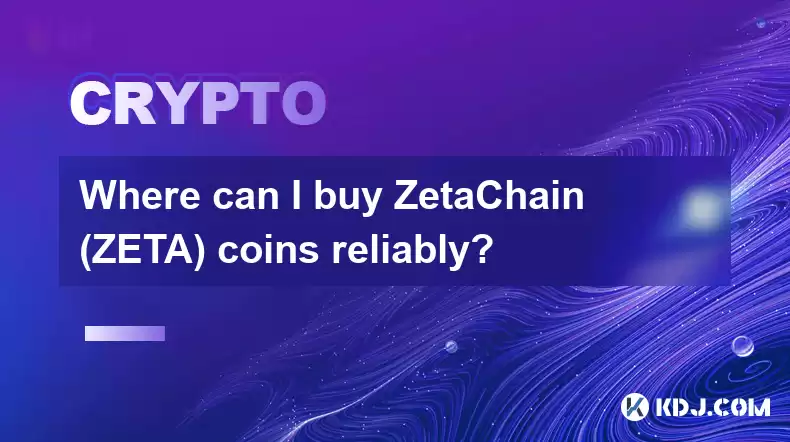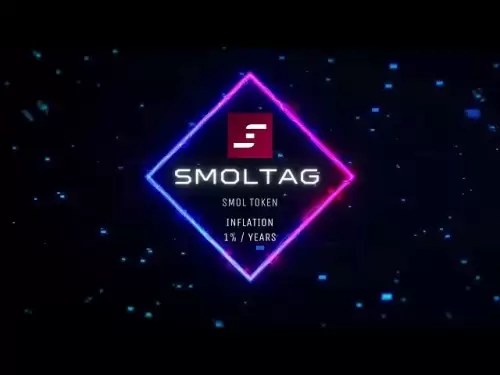-
 Bitcoin
Bitcoin $119300
1.07% -
 Ethereum
Ethereum $3730
3.87% -
 XRP
XRP $3.235
0.29% -
 Tether USDt
Tether USDt $1.000
0.00% -
 BNB
BNB $783.5
1.88% -
 Solana
Solana $188.7
0.25% -
 USDC
USDC $0.0000
-0.01% -
 Dogecoin
Dogecoin $0.2399
-0.44% -
 TRON
TRON $0.3157
2.37% -
 Cardano
Cardano $0.8254
1.94% -
 Hyperliquid
Hyperliquid $42.83
0.14% -
 Stellar
Stellar $0.4372
3.21% -
 Sui
Sui $3.859
4.91% -
 Chainlink
Chainlink $18.53
3.53% -
 Hedera
Hedera $0.2464
0.01% -
 Bitcoin Cash
Bitcoin Cash $519.8
2.46% -
 Avalanche
Avalanche $24.24
2.17% -
 Litecoin
Litecoin $113.7
0.73% -
 UNUS SED LEO
UNUS SED LEO $8.990
0.30% -
 Shiba Inu
Shiba Inu $0.00001390
0.21% -
 Toncoin
Toncoin $3.188
1.49% -
 Ethena USDe
Ethena USDe $1.001
0.02% -
 Polkadot
Polkadot $4.090
-0.91% -
 Uniswap
Uniswap $10.40
4.08% -
 Monero
Monero $326.6
3.12% -
 Bitget Token
Bitget Token $4.627
-0.42% -
 Pepe
Pepe $0.00001281
0.76% -
 Dai
Dai $1.000
0.01% -
 Aave
Aave $291.6
0.98% -
 Cronos
Cronos $0.1269
7.26%
Where can I buy ZetaChain (ZETA) coins reliably?
For reliable ZetaChain (ZETA) trading, consider reputable exchanges like Binance, KuCoin, and Gate.io, which offer various trading options and high liquidity.
Dec 23, 2024 at 01:36 pm

Key Points:
- Introduction to ZetaChain (ZETA) and Its Use Cases
- Reputable Cryptocurrency Exchanges for ZETA Trading
- Decentralized Exchanges (DEXs) for ZETA Trading
- Key Factors to Consider When Selecting a ZETA Exchange
- Step-by-Step Guide to Purchasing ZETA on a Centralized Exchange
- Benefits of Using DEXs for ZETA Trading
- Risks Associated with ZETA Trading
- FAQs on ZetaChain (ZETA) and Its Trading Platforms
Where can I buy ZetaChain (ZETA) coins reliably?
Introduction to ZetaChain (ZETA) and Its Use Cases
ZetaChain (ZETA) is a decentralized blockchain platform that facilitates seamless multi-chain interactions. It connects various blockchains, including Bitcoin, Ethereum, and Solana, enabling the cross-chain transfer of assets, data, and smart contracts. ZETA's use cases extend to DeFi, cross-chain payments, interoperability, and decentralized applications (dApps).
Reputable Cryptocurrency Exchanges for ZETA Trading
1. Binance:
- Largest cryptocurrency exchange by trading volume.
- Offers a comprehensive platform with advanced trading features.
- Supports ZETA trading against USDT, BUSD, and BTC.
2. KuCoin:
- Well-established cryptocurrency exchange known for altcoin support.
- Provides access to a wide range of trading pairs for ZETA.
- Features a user-friendly interface and low trading fees.
3. Gate.io:
- Reputable exchange with support for numerous cryptocurrencies.
- Offers a competitive fee structure and ZETA trading pairs against USDT, BTC, and ETH.
- Provides advanced order types for experienced traders.
Decentralized Exchanges (DEXs) for ZETA Trading
1. Uniswap:
- Decentralized exchange based on the Ethereum blockchain.
- Enables direct peer-to-peer ZETA trading without intermediaries.
- Features a simple and accessible interface for beginners.
2. PancakeSwap:
- Decentralized exchange operating on the Binance Smart Chain (BSC).
- Offers a wide selection of trading pairs for ZETA, including ZETA/BNB, ZETA/BUSD, and ZETA/USDT.
- Supports various decentralized applications and yield farming opportunities.
3. Serum:
- Decentralized exchange built on Solana.
- Provides a high-performance trading platform with low fees.
- Supports cross-chain swaps between SPL tokens, including ZETA.
Key Factors to Consider When Selecting a ZETA Exchange
- Regulation and Security: Choose exchanges with robust security measures and regulatory compliance.
- Trading Volume: Higher trading volume ensures liquidity and competitive prices for ZETA.
- Trading Fees: Consider the exchange's trading fees, including maker/taker fees and withdrawal fees.
- User Interface: Select an exchange with an intuitive and user-friendly interface, especially if you're a beginner.
- Customer Support: Choose an exchange with responsive and helpful customer support in case of any issues.
Step-by-Step Guide to Purchasing ZETA on a Centralized Exchange
- Create an account on a reputable cryptocurrency exchange, such as Binance or KuCoin.
- Verify your account by completing the required KYC (Know Your Customer) process.
- Deposit funds into your exchange account using a supported method, such as bank transfer or credit card.
- Navigate to the ZETA trading pair (e.g., ZETA/USDT) and enter the amount of ZETA you wish to purchase.
- Select the order type (e.g., Market Order or Limit Order) and submit your order.
- Your ZETA coins will be credited to your exchange account once the order is executed.
Benefits of Using DEXs for ZETA Trading
- Decentralized: DEXs eliminate intermediaries and facilitate direct peer-to-peer trading.
- Privacy: DEXs do not require extensive personal information, preserving user privacy.
- Lower Fees: DEXs often have lower trading fees compared to centralized exchanges.
- Access to New Tokens: DEXs list emerging altcoins and tokens that may not be available on centralized exchanges.
Risks Associated with ZETA Trading
- Market Volatility: ZETA and other cryptocurrencies are subject to market volatility and price fluctuations.
- Smart Contract Risk: Ensure the ZetaChain smart contracts have undergone rigorous audits to mitigate potential security vulnerabilities.
- Liquidity Risk: ZETA trading pairs may have limited liquidity on some exchanges, potentially affecting order executions.
- Exchange Risks: Choose well-established exchanges with robust security measures to minimize counterparty risks.
FAQs on ZetaChain (ZETA) and Its Trading Platforms
Q: What is the minimum amount I can purchase ZETA coins on an exchange?
A: The minimum amount of ZETA coins you can purchase may vary depending on the exchange you use. Check the exchange's trading rules for specific details.
Q: Can I withdraw ZETA coins from a DEX to my own wallet?
A: Yes, DEXs allow you to withdraw your ZETA coins to a non-custodial wallet or hardware wallet that supports ZETA.
Q: What are the withdrawal fees for ZETA on different exchanges?
A: Withdrawal fees vary across exchanges. Check the exchange's withdrawal schedule for the specific fees associated with ZETA withdrawals.
Q: Is it necessary to verify my identity to purchase ZETA on a centralized exchange?
A: Most centralized exchanges require KYC (Know Your Customer) verification to comply with regulatory requirements.
Disclaimer:info@kdj.com
The information provided is not trading advice. kdj.com does not assume any responsibility for any investments made based on the information provided in this article. Cryptocurrencies are highly volatile and it is highly recommended that you invest with caution after thorough research!
If you believe that the content used on this website infringes your copyright, please contact us immediately (info@kdj.com) and we will delete it promptly.
- MoonBull's Presale Heats Up: Community Interest and Meme Coin Mania
- 2025-07-25 04:30:12
- Ripple's RLUSD: Stablecoin Ascends to #1 Most Trusted Amidst Regulatory Shifts
- 2025-07-25 04:30:12
- Binance, Circle, and USYC: Bridging the Gap Between Crypto and Traditional Finance
- 2025-07-25 02:30:12
- Park Gyuri, Pica Coin, and Crypto Fraud: A K-Pop Scandal Unfolds
- 2025-07-25 03:50:13
- Ruvi AI: The Avalanche Threat or Next Big Thing?
- 2025-07-25 03:50:13
- Anna K's Bold Vision at Token Creek: A Theater Production That Dares
- 2025-07-25 03:55:12
Related knowledge

What is Chainlink (LINK)?
Jul 22,2025 at 02:14am
Understanding Chainlink (LINK): The Decentralized Oracle NetworkChainlink is a decentralized oracle network designed to bridge the gap between blockch...

What is Avalanche (AVAX)?
Jul 22,2025 at 08:35am
What is Avalanche (AVAX)?Avalanche (AVAX) is a decentralized, open-source blockchain platform designed to support high-performance decentralized appli...

What is Polkadot (DOT)?
Jul 19,2025 at 06:35pm
Understanding the Basics of Polkadot (DOT)Polkadot (DOT) is a multi-chain network protocol designed to enable different blockchains to transfer messag...

What is Litecoin (LTC)?
Jul 23,2025 at 11:35am
Overview of Litecoin (LTC)Litecoin (LTC) is a peer-to-peer cryptocurrency that was created in 2011 by Charlie Lee, a former Google engineer. It is oft...

What is Monero (XMR)?
Jul 21,2025 at 10:07am
What is Monero (XMR)?Monero (XMR) is a decentralized cryptocurrency designed to provide enhanced privacy and anonymity for its users. Unlike Bitcoin a...

How to add indicators to Ethereum chart on TradingView?
Jul 19,2025 at 07:15am
What Is an Ethereum Chart on TradingView?The Ethereum chart on TradingView is a visual representation of the price movement of Ethereum (ETH) over a s...

What is Chainlink (LINK)?
Jul 22,2025 at 02:14am
Understanding Chainlink (LINK): The Decentralized Oracle NetworkChainlink is a decentralized oracle network designed to bridge the gap between blockch...

What is Avalanche (AVAX)?
Jul 22,2025 at 08:35am
What is Avalanche (AVAX)?Avalanche (AVAX) is a decentralized, open-source blockchain platform designed to support high-performance decentralized appli...

What is Polkadot (DOT)?
Jul 19,2025 at 06:35pm
Understanding the Basics of Polkadot (DOT)Polkadot (DOT) is a multi-chain network protocol designed to enable different blockchains to transfer messag...

What is Litecoin (LTC)?
Jul 23,2025 at 11:35am
Overview of Litecoin (LTC)Litecoin (LTC) is a peer-to-peer cryptocurrency that was created in 2011 by Charlie Lee, a former Google engineer. It is oft...

What is Monero (XMR)?
Jul 21,2025 at 10:07am
What is Monero (XMR)?Monero (XMR) is a decentralized cryptocurrency designed to provide enhanced privacy and anonymity for its users. Unlike Bitcoin a...

How to add indicators to Ethereum chart on TradingView?
Jul 19,2025 at 07:15am
What Is an Ethereum Chart on TradingView?The Ethereum chart on TradingView is a visual representation of the price movement of Ethereum (ETH) over a s...
See all articles

























































































